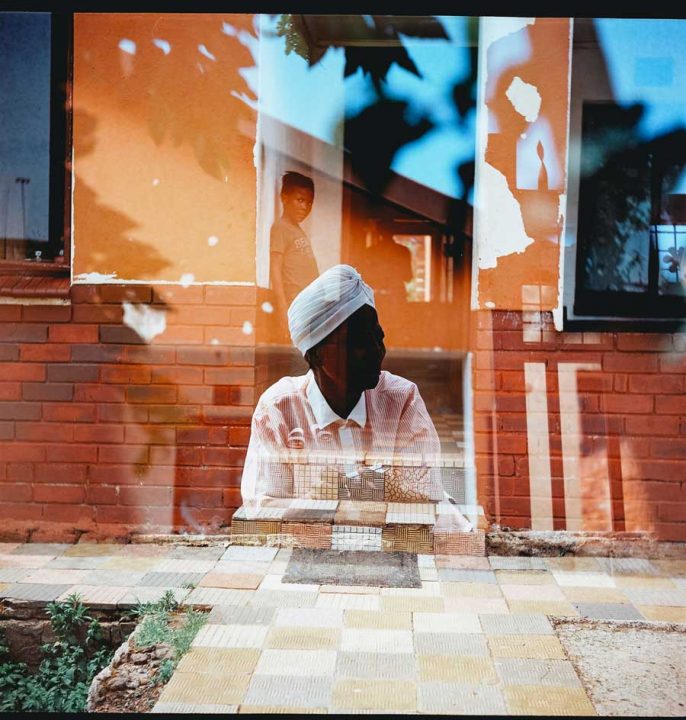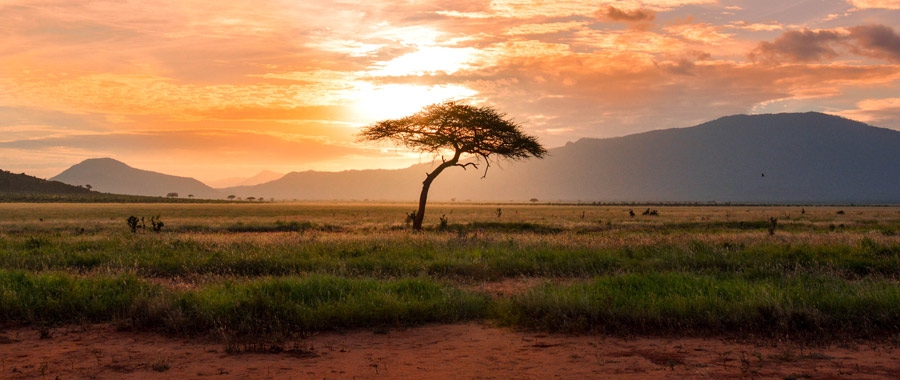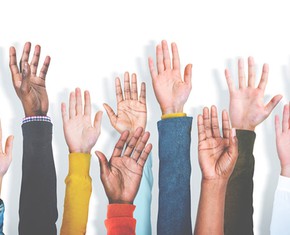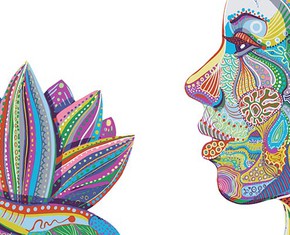The views expressed in our content reflect individual perspectives and do not represent the authoritative views of the Baha'i Faith.
After my first graduate degree, I went to Africa to teach chemistry and physics – and to find, in the heart of one of the most spiritual places on Earth, my own spiritual reality.
It was easy to find God in the quiet of the agricultural college on the edge of a remote village where I worked, under the sun-drenched skies spotted about with bushy, thorn-laden acacia trees, rows of bark-shredding eucalyptus, wandering goats and the most magnificent assemblage of birds.
As I got to know the local Africans and their culture, I could see that God was present in their pure hearts, beautiful smiles, and harmonious songs. So many of the rural Africans had nothing but themselves and their simple acts of service to offer the world – and that was enough.
I also saw God in the sacrifice of my Baha’i co-workers, who came to Africa, to the most isolated places, with only their own financial resources, not to preach, but to learn from and serve Africans and to practice building with them a united spiritual community. Africa will always have a dear place in my heart, because I learned about miracles there.
More Miracles
Scholars of religion know, and anyone can find out with Google’s help, that all the founders of the world’s major religions have miracles attributed to them. Buddha walked and talked at birth. Muhammad split the moon, water flowed between his fingers, stones greeted him, and he multiplied food and water. Zarathustra laughed when he was born and healed the sick. Christ fed the multitudes out of food for one. Even those who follow these chosen manifestations of God have miracles attributed to them, or so the New Testament tells us.
It seems clear, then, that miracles are not the sole property of any one religion – and that it would seem wise to critically examine any fantastic tale, as people tend to exaggerate when re-telling stories. Are miraculous occurrences important? The Baha’i teachings offer this advice:
The Manifestations of God are sources of miraculous deeds and marvellous signs. Any difficult or impossible matter is to Them possible and permitted. … From each of Them, marvellous things have appeared.
But in the Sacred Scriptures a special terminology is used, and in the sight of these Manifestations of God these marvels and miracles are of no importance, so much so that They do not even wish them to be mentioned. For even if these miracles were considered the greatest of proofs, they would constitute a clear evidence only for those who were present when they took place, not for those who were absent. – Abdu’l-Baha, Some Answered Questions, p. 113.
With this preface, I’ll tell you why someone once ascribed a miracle to me. That supposed miracle happened like this: I was in Africa trying to be of service to a rural African community by teaching science in a spartan rural university. I also taught my faith to those who were interested and tried to be of service to those who became Baha’is. After some time, a small religious community grew in my adopted village. One member, a beautiful old man with a sweet smile and pleasant disposition named Sams Lehehe, was probably in his 70’s and a bit eccentric. (We are all a bit eccentric, I’ve found.)

I can’t remember the details of what we were talking about at the time, it may have been miracles, but suddenly and unexpectedly one day, Sams announced that I had miraculously cured his feet. I was dumbfounded! I didn’t even know anything was wrong with Sams’ feet and I’m not in the habit of trying to work miracles. But apparently Sams had had trouble walking and then he met me, joined the Baha’i Faith and now proclaimed that he could walk and that I had healed him. Now maybe Sams was healed – who am I to contradict him? – and maybe it did have something to do with me being there. Who knows what the Holy Spirit can do through others, or if Sams’ interpreted things correctly, but whatever healing happened (if it happened) says nothing about my spiritual capacity except that I was there trying to serve others. In all likelihood, though, a more reasonable explanation is that sweet people are very apt to ascribe to others miraculous powers whether or not they exist. Thus, I learned, in very personal way, that miracle stories are a dime a dozen – especially among pure-hearted people.
The point here is that miracles make lousy proofs of a chosen one of God. Nor do they make good proofs that your religion is better or truer than anyone else’s. But miracles can, I firmly believe, happen.
Leaving Africa – and More Miracles
Eventually, my isolation in Africa began to take its toll. I had no telephone, no television, was not married, and had to travel long distances by car to get things I needed: an hour and a half to get to a reasonable grocery store, and five hours to get to a bookstore. Also, I needed to change my area of expertise. I decided to return to the United States to make a career adjustment, possibly marry, and then return, maybe to a less isolated place.
Back in graduate school, I found God in the circumstances that led to my marriage. It seems to me the events were miraculous – you be the judge. I met my wife-to-be at a family planning conference. We were both graduate students in public health at Emory University and the program director decided that any student who went to this national three-day conference would get credit for attending and taking a test afterward.
My future wife was and is beautiful. When I met her, I felt an instant attraction, and decided it would be a good idea for the two of us to study for the post-conference exam together. However, I did not have any classes with her, I did not catch her name when we first met in a large group, and I did not know how to reach her. It seemed hopeless. Then, a day or two after the conference, I went to an event on campus and a Chinese man came up to me and began speaking to me as if he knew me.
I decided to use the opportune moment to see if he knew the girl I wanted to meet. As it turns out he did, and I learned her name – Ming. Now, here’s the first trace of the miraculous: We later learned that the Chinese man who came up to talk with me thought I was another man, who it turns out I knew, as he was also a Baha’i. That other man did not even go to my University, is six foot four inches tall, has red hair, and wears glasses. I’m five foot nine, had brown hair (then) and didn’t wear glasses (not for another ten years). The only things similar between us was that we were both Baha’is and both had beards.
The Chinese man I met agreed to arrange a study session with Ming and I. That night I applied to be her boyfriend, she miraculously accepted, and two weeks later we decided we wanted to get married.
There’s more to it. Within a few days, Ming (without asking me) decided to tell her parents of our plan to be married. I would have preferred she wait a bit, and predictably they freaked out. Ming had only been in the United States a few months and now she suddenly wanted to get married to an American she’d just met.
Well, Baha’is need the permission of all living parents to marry – so, our plans to become husband and wife hit an insuperable barrier. Ming’s parents wisely advised her to wait until after she graduated in another two years before she could even think about marriage.
We waited. But because her parents lived in Shanghai and did not know me, and because I could not speak Chinese, how on Earth could we convince them that I was of good character and an acceptable son-in-law? Get ready to be amazed. The Chinese man who had arranged our meeting became a fast friend, eventually moved in as my roommate, and became a Baha’i. He also had come from Shanghai, a city of almost 15 million people, and here’s the magic: Though he had not previously known Ming, he knew Ming’s mother and he offered to go and talk with her after he returned to Shanghai. This he did, and it worked – soon after, Ming and I got her parent’s consent to marry. We now have two beautiful grown children: Sahar and Arin.
So now you can see how my life feels touched by the divine. God gave me a wonderful wife and kids, in seemingly miraculous ways.
In short, I have found God as He was lovingly finding me, guiding me, connecting me, being a comforter, and teaching me that He is everywhere, calling us to participate in His plan, creating new and greater realities at every moment. For me, finding God has been a matter of perception that seemed only to require an awakening and a trust. It’s certainly been more of a gift than anything I have earned. Perhaps some early suffering played a part in preparing me for faith, but then, this too, would have been a gift.
















Comments
Sign in or create an account
Continue with Googleor